The Hobby Shop
The MIT Hobby Shop is a fully equipped wood and metal shop that teaches students the art of thoughtful design and craft.
Our Mission
The MIT Hobby Shop is a collaborative workspace where all members of the MIT Community, regardless of skill level, access well-maintained tools, machines, and expert guidance.
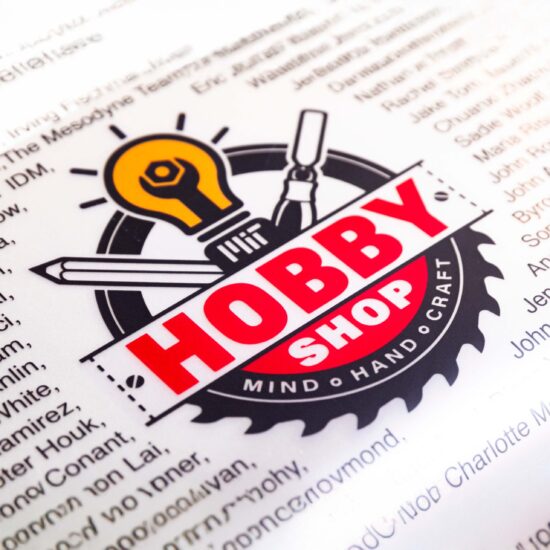
We offer one-on-one instruction, design support, and hands-on training for academic, personal, or passion projects. From introductory instruction to cross-departmental collaborations, we empower the MIT community to build confidently, whether prototyping for research or school work, or crafting just for fun.
How We Operate
Get expert help and one-on-one training to bring your creative projects to life: no grades, no deadlines, just hands-on support and skill-building.
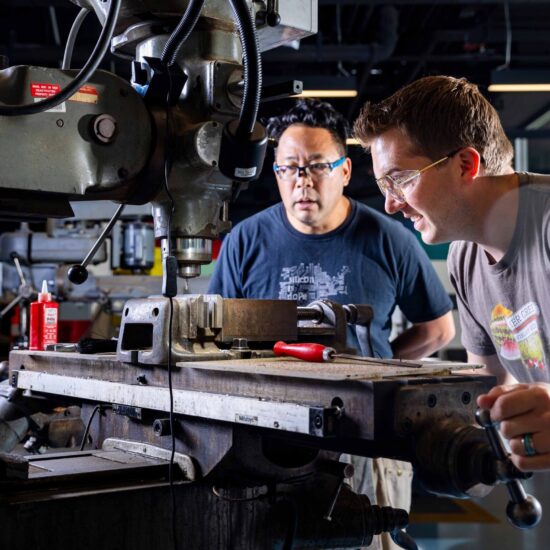
Expert Guidance for Your Projects
The Hobby Shop is staffed by two full-time professionals dedicated to helping you complete projects safely and successfully. We’re here to guide and support your creative process: we don’t give assignments, deadlines, or grades. Our priority is empowering you to plan and execute projects with confidence and gain hands-on skills.
Hands-On Learning
We provide one-on-one training for every tool you’ll need, tailored to your project. We ask that you come with an idea – something that motivates you to come to the Hobby Shop – and we’ll help you take take if off of paper in bring it to life!
The Hobby Shop is a fully equipped metal and wood working shop with a variety of machines and hand tools for a diverse array of applications. Our physical space is split into the Hobby Shop Wood Side and the Hobby Shop Metal Side, but our diverse array of equipment encompasses these two working areas, and more!
Hobby Shop Wood Side Machines:
- Oliver 30” Band Saw
- Martin Jointer – 20”
- Martin Planer – 24”
- Wood Lathe 2436 – lathes x 2
- Laguna LMB 200 Mortising Machine –
- Laguna Swift 8′ x 4’x 8″ CNC Router
- Saw Stop Industrial Table Saw x 2
- Sanding Machines – Speed Sander 42” Wide belt, Cantek 48” Belt, Max 24” Disc, Delta Drum sander
- Shop Bot Buddy CNC Router – 48” x 8” rotory
- Bosch Miter Saw 10” Sliding compound
- Jet Industrial Drill Press –
- Epilog Fusion 120w Laser Cutter – 40” x 28”
- Bridgeport Mill – M Head ‘62
- Lots and lots of measuring and woodworking hand tools, and so much more!
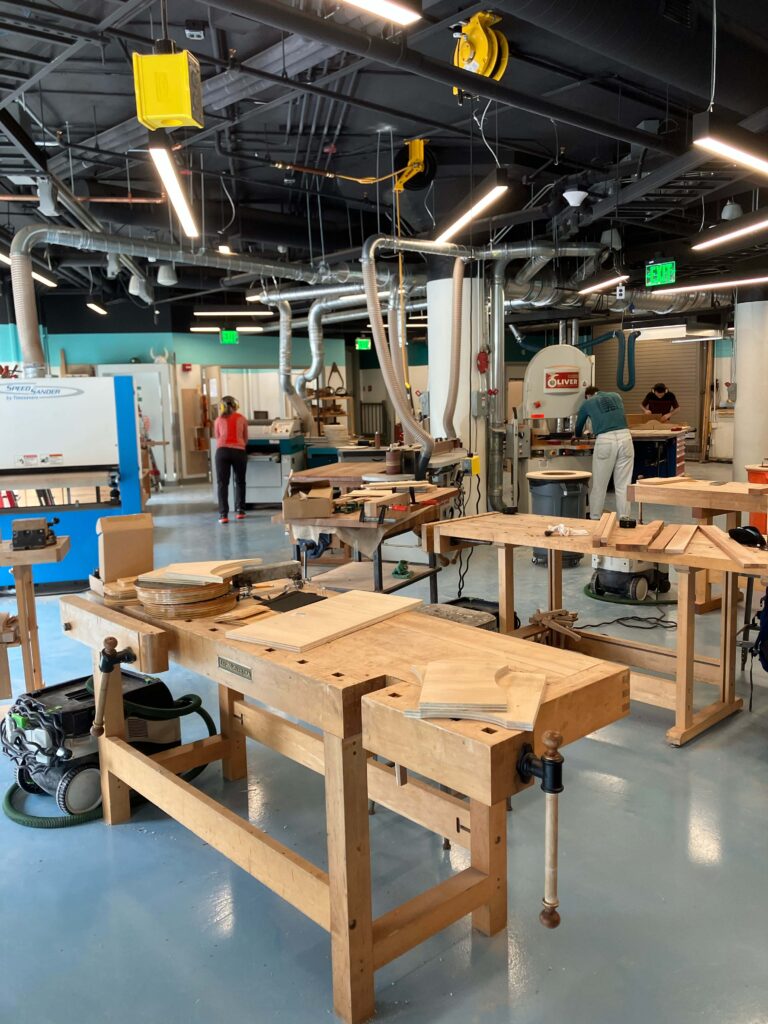
Hobby Shop Metal Side Machines:
- Omax Micro Jet – Water Jet
- Do All 24” Band Saw
- Menig Micro Mill
- Prototrak TRL 1630 SX Lathe
- Prototrak DPM 2 Mill
- Haas Mini Mill 2
- Bridgeport Mill – J Head ‘70
- Clausing Drill – Press
- Millermatic MIG Welder
- Miller TIG Welder
- Baileigh – 14” Cold Saw
- Formtech 989 – Vacuum Former
- And so much more!
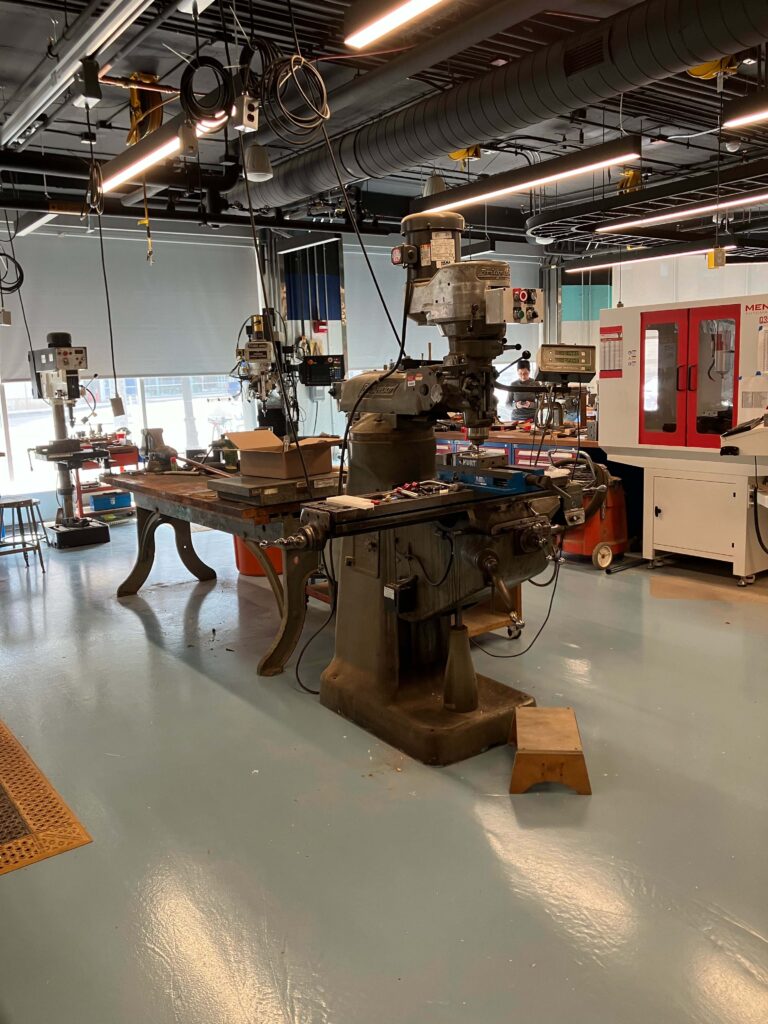
…And More!
- Formlabs Form3L Resin SLA Printer
- Stratasys UPrint SE Plus FDM Printer
- Singer Heavyweight Desktop Sewing Machine
- Leatherworking Tools
- Tufting Guns
- Softserve Machine!!!
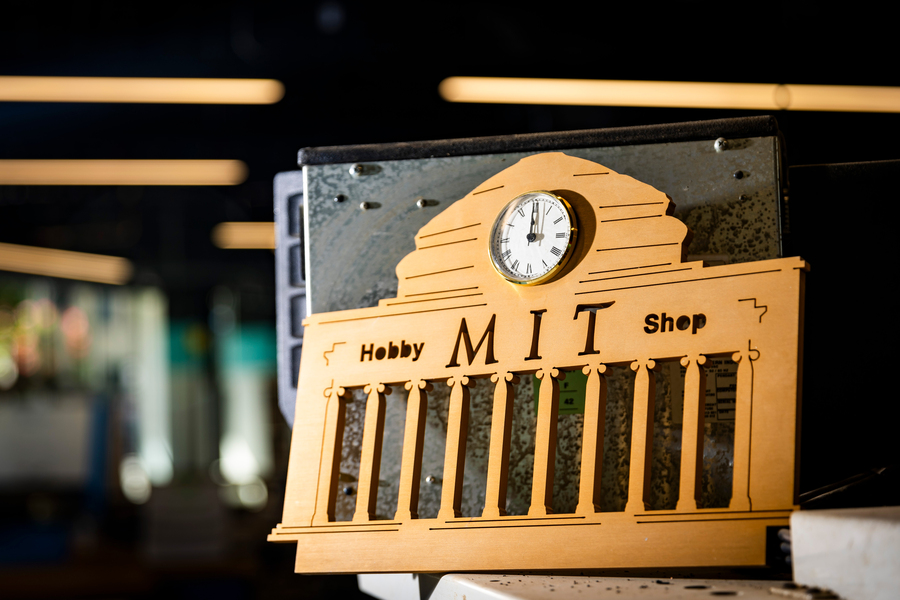
Our Spring Semester Hours
* Spring Term Orientations will be held on Wednesdays 1:00 p.m. – 2:00 p.m. and Fridays 3:00 – 4:00 p.m. Final Orientation will be held on Friday, April 10. Please note that all machines must be powered down during the orientation period to provide a quiet environment.
Hobby Shop Tours – Mondays 12:00 – 12:30. Learn more about the Hobby Shop before signing up for a Membership Orientation. Please email: hayami@mit.edu to make a reservation
| Monday | Closed March 2nd – Hayami Vacation |
| Tuesday | 12:00am – 8:00pm ( Charlotte 8-11 ) March 3 |
| Wednesday | 11:00 pm – 7:00pm ( Charlotte 11-7) March 4 |
| Thursday | 12:00am – 8:00pm ( Charlotte 12-8) March 5 |
| Friday | 10:00pm – 6:00pm ( Charlotte 10-6) March 6 |
| Saturday | 10:00 – 4:00 (Charlotte 10-4) March 7 |
| Sunday | CLOSED |
Hobby Shop Spring Dates:
| 01/05/2026 | Start of IAP |
| 01/19/2026 | Closed for MLK Jr. Day |
| 02/01/2026 | Return to normal Hobby Shop Schedule |
| 02/03/2026 | First Day of Classes |
| 02/16/2026 | Closed for President’s Day |
| 04/20/2026 | Closed for Patriot’s Day |
| 05/12/2026 | Last Day of Classes |
In the 1937-38 academic year, Vannevar Bush, then-Vice President of MIT, granted a group of 16 MIT students permission to use a room in the basement of Building 2. With equipment they found around the Institute, they set up a wood and metal shop in the 16 x 22 foot area. The club members chose the name “Hobby Shop” based on their belief in the philosophy that the well-rounded individual pursued interests outside their profession — hobbies.
For MIT students, hobbies involved making things, and with their imaginations and talents, a well-equipped shop opened up limitless possibilities. The original Hobby Shop constitution stated that the shop was only to be used by students for non-academic work. The shop operated as a club with a student foreman and members starting as apprentices and progressing to journeymen, and finally, master craftsmen.
During World War II, a staff shop master was hired to instruct students and maintain the machinery. The first shop master, Joe Macalister, worked only until the end of the war when Bob McCadden took over. Starting in his early twenties, Bob remained shop master until he retired in 1972. During this time, the shop expanded several times and finally moved to its longtime location in the basement of W31, formerly a World War I armory, on the corner of Vassar Street and Massachusetts Avenue.
Membership was expanded to faculty, staff, alumni, and their spouses. While wood and metal remained, many other hobbies were added, later spinning off as separate clubs — electronics, photography, printing, and throwing pots, to name a few.
By the time Ken Stone arrived at MIT as a student in 1968, the formal club aspects had been lost. There was no student shop foreman or member classifications given, but the shop was still busy. The printing press had been given to APO and potting was now in Student Art, but there was still a black and white darkroom along with the wood and metal shop. George Pishenin, a technician in the Material Science Department and longtime shop member, took over in 1972 as Director. Eventually, the darkroom was removed for space and because Student Art had a better facility.
In 1991, Pishenin retired, and Ken took over as only the fourth shop master, and the first who was also a MIT graduate. During his time as director, the Hobby Shop expanded its mission to meet the needs of a new generation of students. MIT had many shops when Ken was a student at MIT, including student shops in all engineering and many science departments. Most of these shops had been closed by 1990, and the ones that remained focused on work for specific classes. At the same time, secondary schools were closing shops and sending fewer students to MIT with hands-on experience.
Today, the Hobby Shop is run by Ken’s successor, Hayami Arakawa, who arrived at MIT in 2006. As director, Hayami has helped to grow the Hobby Shop’s robust membership, ushered in the next generation of MIT makers, and oversees the day-to-day ongoings of the shop in our brand new space on Massachusetts Avenue, at the site of the old MIT Museum.
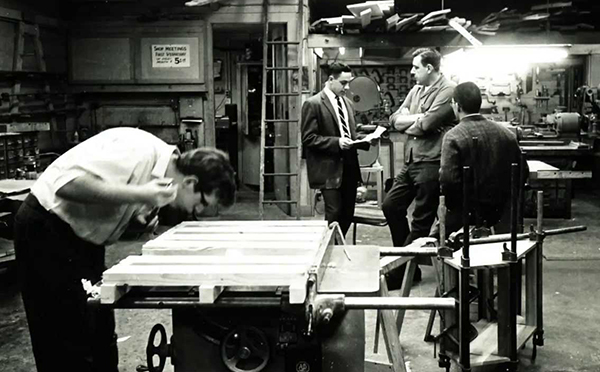
The Hobby Shop is open to MIT students, staff, faculty, and alumni. In order to join, you must have a current, up-to-date MIT ID. Memberships are available for one or two terms or for the entire year (three consecutive terms):
- Fall: September 1 through January 31
- Spring: January 1 through May 31
- Summer: June 1 through August 31
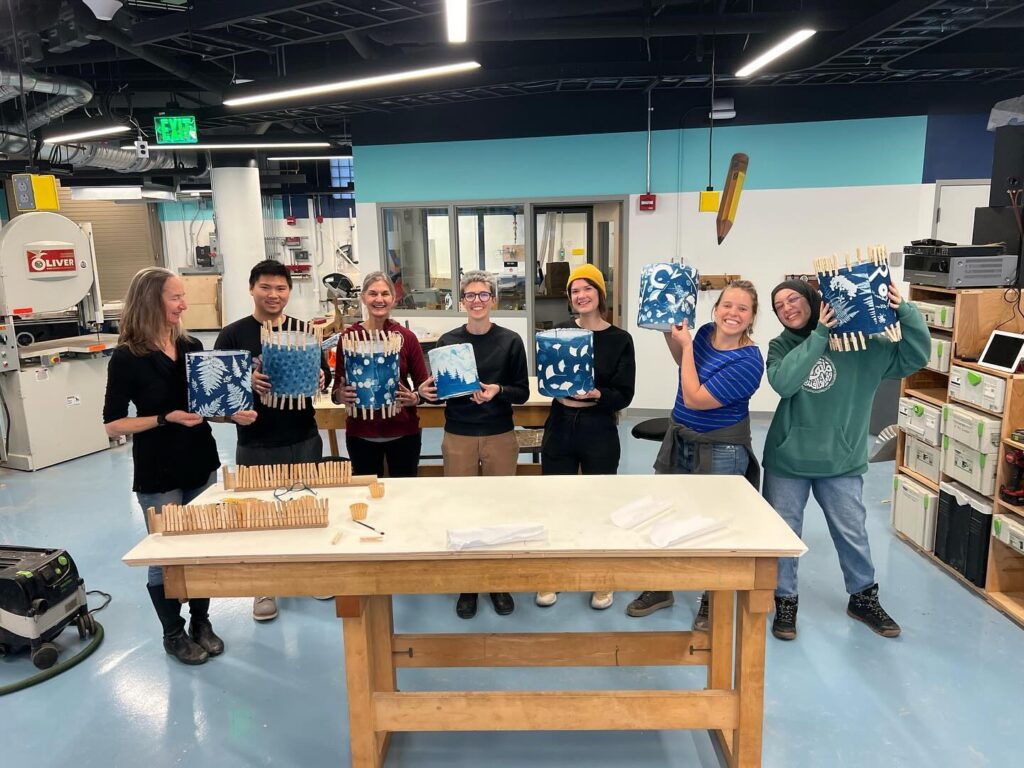
Whether you are a beginner or have a high-level skill set in making, we all share one space to create. Orientation helps everyone understands how we operate.
To become a member, you must complete a two step orientation process:
- Request an invitation to our online scheduling service, Calira
- Complete a one-hour, in-person orientation
Orientations for the spring of 2026 will be held on Wednesdays at 1:00-2:00 p.m. and Fridays from 3:00-4:00 p.m.
**Please note that if you are the sole person to sign up for a Wednesday orientation, we may contact you to ask to reschedule and join one of our Friday sessions.
Hobby Shop Tours are back! Monday from 12:00 – 12:30, stop by the Hobby Shop for a short tour to see what we’re all about, and to ask questions before committing to being a member! Please email creiter@mit.edu or hayami@mit.edu to schedule a tour.
Membership Fees
| Member Type | 1 Term | 2 Terms | Yearly |
|---|---|---|---|
| Student | $50 | $90 | $120 |
| Staff | $100 | $180 | $250 |
| Faculty | $150 | $250 | $400 |
| Alumni | $250 | $475 | $650 |
Membership fees are due at the beginning of orientation. We accept membership fees via Cash, TechCash, Check, and Internal Requisition. We do not accept credit cards or debit cards at the Hobby Shop.
Please note that we do not pro-rate term fees.
Check Out Some Incredible Work!
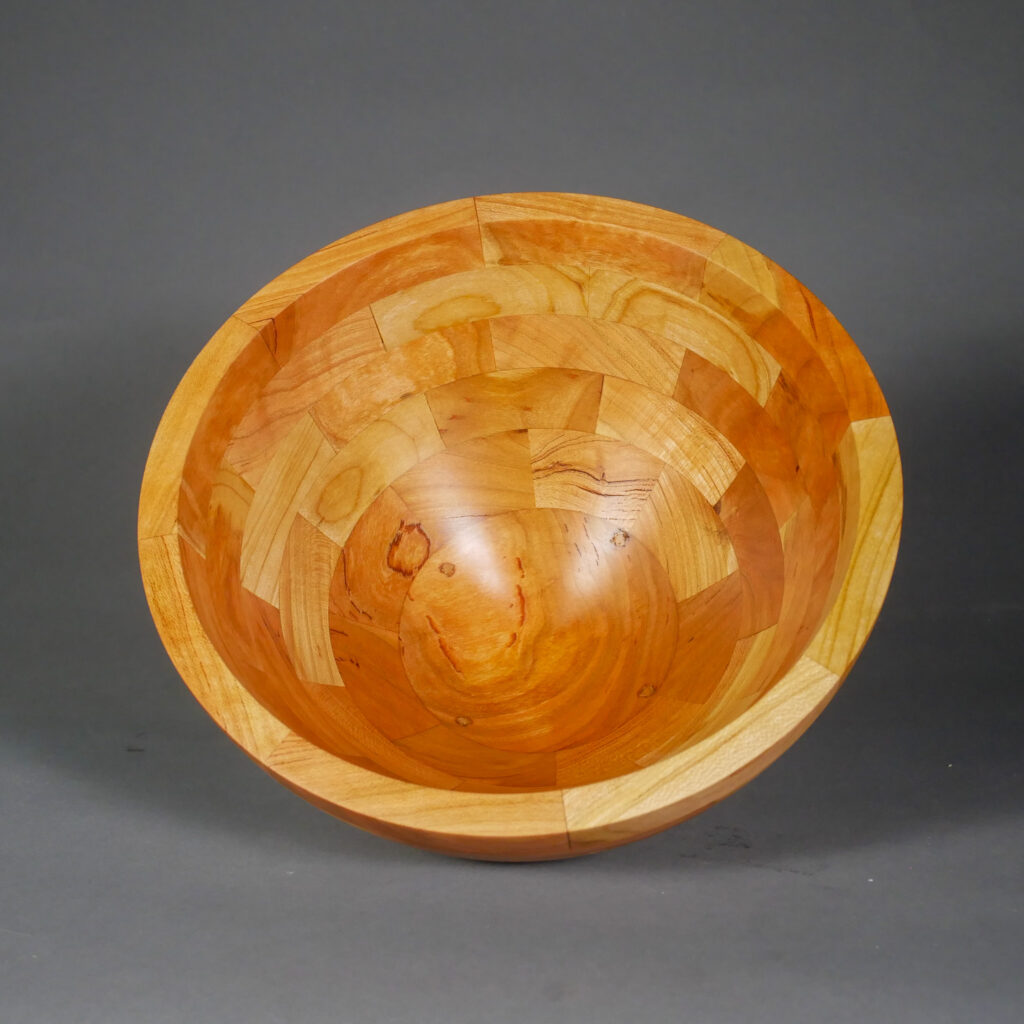
Segmented Bowl
Hand-turned cherry bowl made on the wood lathe by Alumni Member Michael Stolberg.
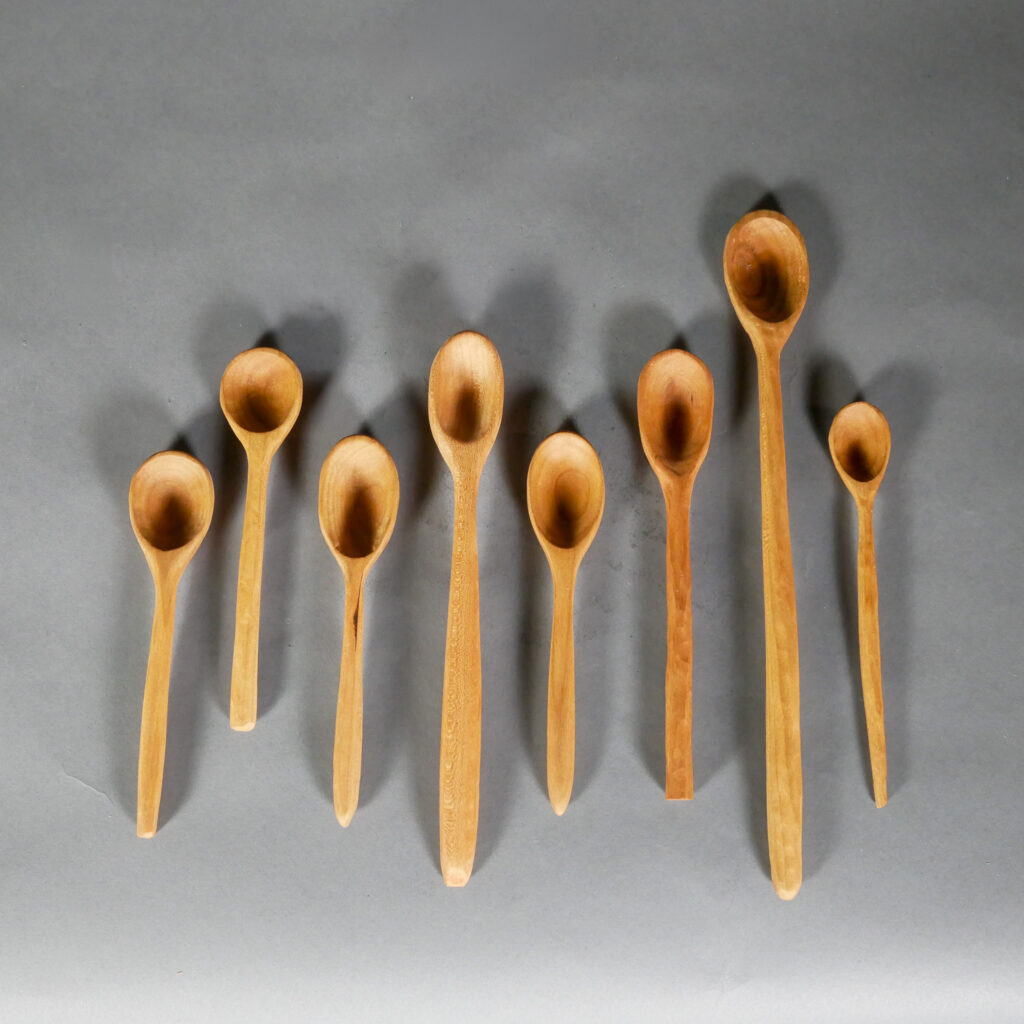
Hand-Carved Spoons
Hand-carved cherry spoons made by Graduate Student Member Dorotea Macri.
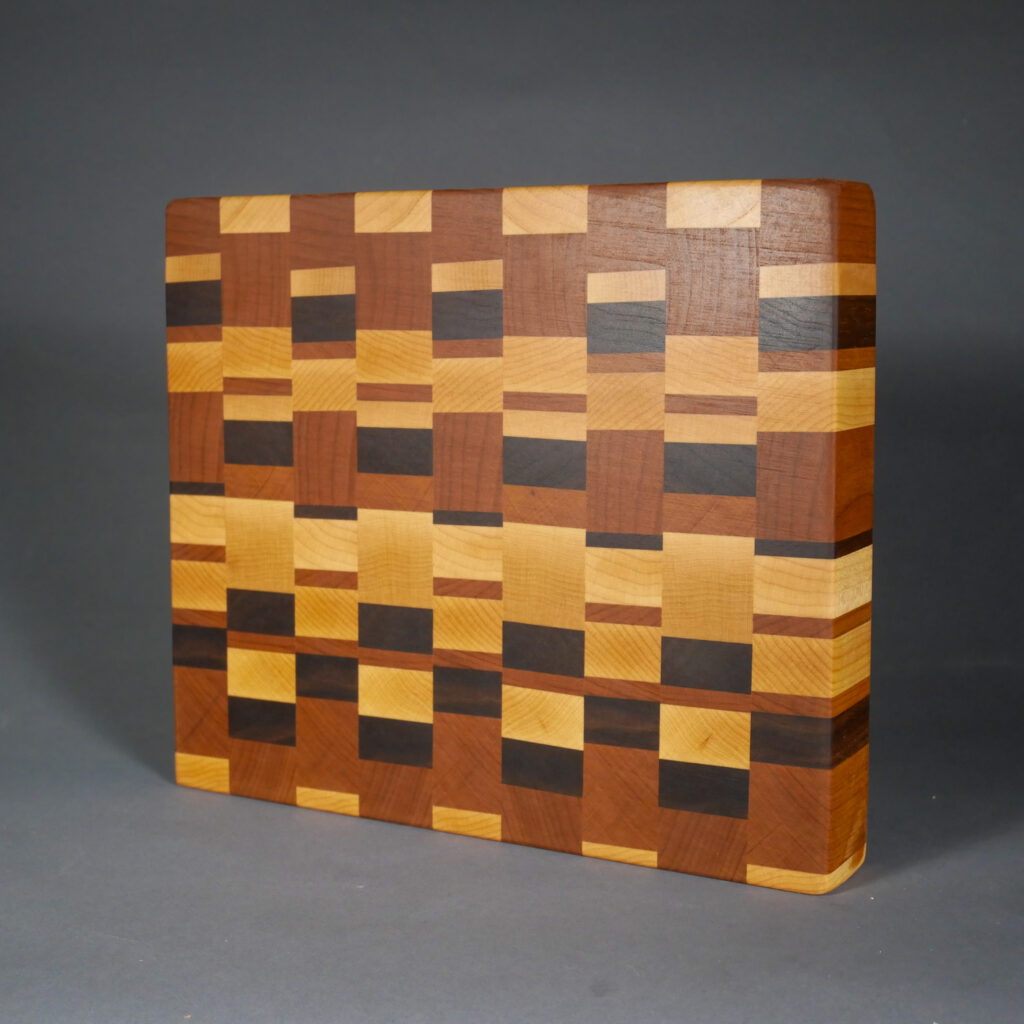
Cutting Board
Maple, Cherry, and Walnut end grain cutting board made by MIT Staff Member Tony Pulsone.
Meet Our Team!
The Hobby Shop is staffed full time by two professionals to help you bring your ideas to life!
Hayami Arakawa
I Can Help With All things making at the MIT Hobby Shop!
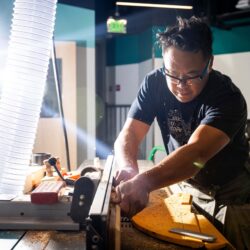
Charlotte Reiter
I Can Help With All things making at the MIT Hobby Shop!

Support the Hobby Shop
For over 85 years, the Hobby Shop has been a vital part of education at MIT. We provide every student with the opportunity to invent, design, and build, getting the hands-on experience that is so important for the success of future engineers, scientists, and architects. To continue to improve this shop experience and provide new equipment and expand class offerings, we rely on contributions from alumni and friends of the Hobby Shop.
To continue the rich heritage of the Hobby Shop into the 21st century and to enhance the Shop experience for today’s students, we need your support. Every gift to the Hobby Shop helps us continue this tradition of hands-on learning — Mens et Manus.
Contact Us
Hayami Arakawa, Director Charlotte Reiter, Associate Instructor
Hayami: 10-5 Monday – Friday. Charlotte: 12-7 Tuesday – Saturday
Monday | 10 a.m. – 5 p.m.
Tuesday and Thursday | 10 a.m. – 8 p.m.
Wednesdays and Friday | 10 a.m. – 7 p.m. **
Saturday | 10 a.m. – 4 p.m.
Closed Sundays.
**Please note that during the semester, we shut down the shop for 1 hour during the day to lead an orientation. This orientation takes place from 1-2 p.m. on Wednesdays and 3-4 p.m. on Fridays.